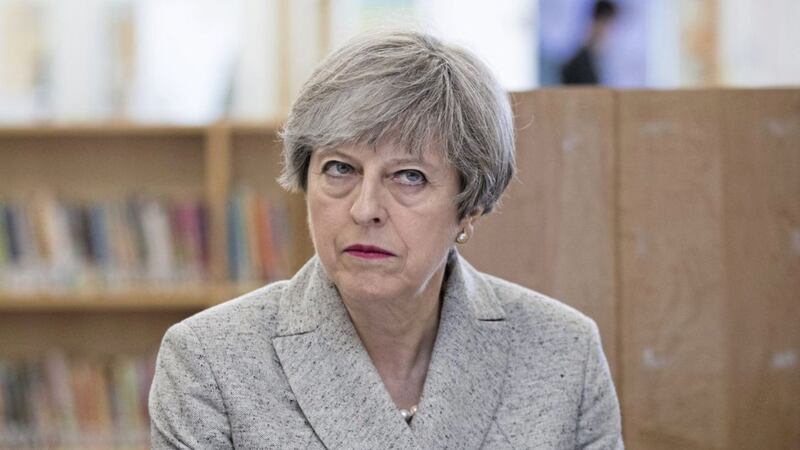Once could be a coincidence. Twice starts to look like a pattern.
In the Commons last Thursday, a government minister announced funding for Northern Ireland women to receive NHS abortions in England.
This had been the subject of a recent Supreme Court case and a long-running campaign by Labour MP Stella Creasy, who raised the issue in Westminster. Yet it is striking that movement came within 72 hours of the DUP-Tory deal being signed.
For 50 years - including 32 years of direct rule - Westminster did nothing about Northern Ireland’s omission from UK abortion law. On the rare occasions when the matter arose, it was dismissed on the grounds of our political sensitivities, separate legal system or devolution. Ministers spent the start of last week repeating these mantras before suddenly abandoning them.
Also last week, secretary of state James Brokenshire announced steps towards “full transparency” on political donations in Northern Ireland, conceding the security context has “changed significantly.”
This had been the subject of another long-running campaign but again it is striking that movement came within five days of the DUP-Tory deal being signed. In a sense it came even faster - Brokenshire was responding to a written question issued 24 hours before by north Down MP Lady Sylvia Hermon, the only Northern Ireland MP attending Westminster who is not in the DUP. Two days later donor secrecy was abolished, although not backdated to 2014 as the law allows.
The pattern emerging is of the Commons smelling weakness.
The DUP thought it could get a big bag of money from Britain then retreat back across the Irish Sea to spend it, protected from interference on all its other foibles by the magic force-fields of devolution, distance and Northern Ireland’s general otherness. However, the DUP was mistaken. The government is vulnerable on any issue that might upset its unionist partners and cause even a handful of Tory MPs to side with the opposition.
So the hunt is one for such issues, either to squeeze the government for delivery or to drive a wedge between it and the DUP. This is a game the government cannot win. Rather than risk losing a vote, or be seen defending some ghastly provincial practice to win a vote, its best option is simply to roll over, disappointing the DUP if necessary.
Abortion and donor secrecy have been rather blunt instruments in this regard, as all four main parties in Northern Ireland hold similar views on both subjects.
Lady Hermon picked up a sharper knife with libel reform - something only the DUP wants to block, for unclear reasons.
Last Friday, the day after her donation question, she asked if the Northern Ireland Office will “align libel law in Northern Ireland with that in England and Wales.”
The NIO batted this question away but it may not be able to do so for much longer. Private Eye magazine, hugely influential in London, has already noted libel reform as a potential obstruction to scrutinising the DUP-Tory deal. Three years ago, the House of Lords proposed imposing libel reform on Northern Ireland, despite it being a devolved matter, due to the absurdity of banning ‘libel tourism’ in one part of the UK while leaving it available in another. The government of the day declined to accept this recommendation but only the DUP was shameless enough to argue against it. What would happen if the issue resurfaced, and could it set a precedent of intruding on devolved matters more generally?
Same-sex marriage is another open goal. Procedures exist in Britain to convert civil partnerships into marriages - £45 and filling in a short form are all that is usually required. This could be opened up to Northern Ireland couples, as the Scottish government has hinted, which would then compel official recognition of those marriages in Northern Ireland, as the executive’s legal advice appears to have recognised.
All this is mischief compared to the opportunity about to arise over Stormont’s budget. Thanks to devolution being put in limbo, Westminster will have to sort out some of Stormont’s finances, probably by the end of this month. The Commons is unlikely to accept a rubber stamp - amendments will almost certainly be tabled, perhaps framed as Britain ‘wanting its money back’. Water charging is one obvious bone of contention.
Conservative MPs will have to support Stormont’s budget - their deal with the DUP depends on it. But they will hate being seen to do so, and the government will weaken further.
newton@irishnews.com









